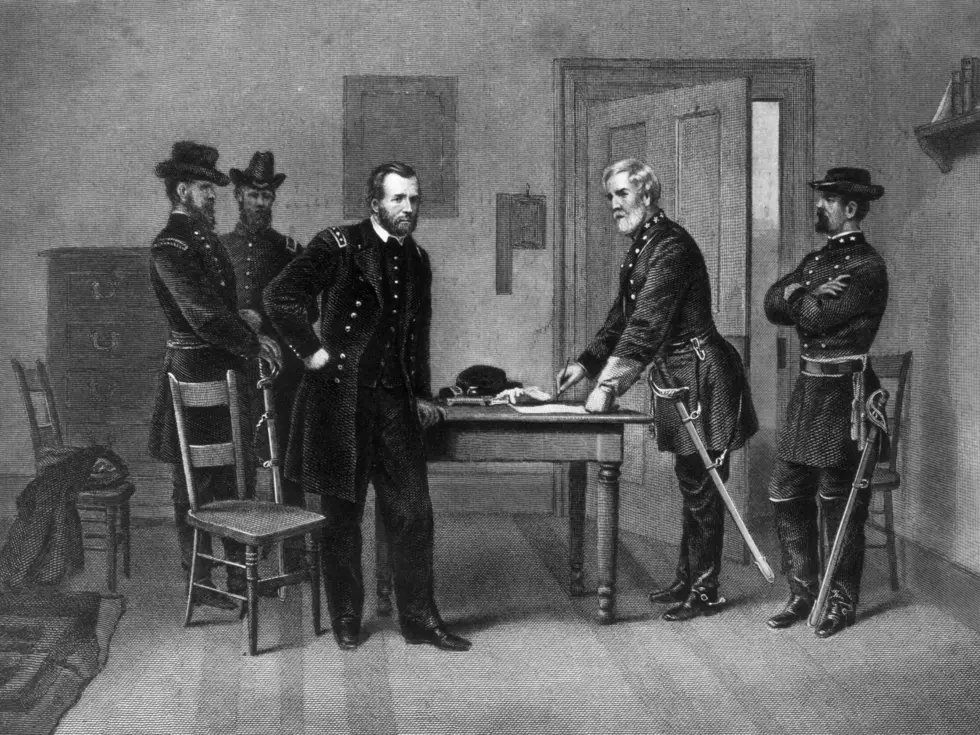
April 9, 1865 — The End of the Civil War
When I started elementary school in Illinois, the Civil War had ended just 83 years earlier. I knew at least one person who had seen Abraham Lincoln in person as a child.
I’m not sure if other states covered the Civil War to the extent we did in Illinois. Being “The Land of Lincoln” might have spurred a little more coverage.
April 9, 1865
On April 9, 1865 General Robert E. Lee was planning a regroup and supply replenishment at the village of Appomattox Court House. He was not planning to surrender but to continue the fight.
Appomattox Court House was the actual name of the town, not a courthouse building. Many southern states had county seats whose names added “court house,” two words instead of one, to name the area.
General Ulysses Grant had been chasing Lee and got in front of him. Grant was able to surround Lee at Appomattox Court House. After a short battle Lee saw the fight was lost and surrendered his Army of Northern Virginia on April 9th at McLean House.
Who received the flag of truce from Lee? None other than George Armstrong Custer of Little Big Horn fame.
Grant allowed Lee to keep his horse, Traveller, and his sword, which was not commonly done at the time. It was a gesture of mutual respect for a fellow American.
May 9, 1865
As news of Lee’s surrender spread Confederate forces began to lay down their arms. On April 14 Lincoln was shot and killed by John Wilkes Booth elevating Vice President Andrew Johnson to the presidency.
Johnson pronounced a final end to the conflict on May 9, 1865.
Jefferson Davis, the Confederate President, was captured the following day. Stand Watie, a Cherokee leader, was the last Confederate General to surrender to the Union forces.
What Did We Lose? What Did We Win?
The Civil War was one of the darkest times in American History. Even today the Confederate Flag is a topic of controversy. And the historic cry of, “The South Will Rise Again” can still be heard in some quarters.
Over 1.2 million American soldiers have died in all of America’s wars. Six hundred twenty thousand died in the Civil War, and 644, 000 in all other wars.
Revolutionary War, War of 1812, Indian wars, WWI, WWII and Korea combined killed fewer than lost their lives in the Civil War.
It was not until the Vietnam War that the number of total casualties in all American wars surpassed the loss of lives during the Civil War.
Some Final Thoughts
Was the cost of so many lives worth it? Only history will be the final judge.
The Civil War caused the rebirth and the reuniting of the United States of America. While it didn’t happen overnight, it did happen.
America, while far from perfect, has a history of self-correction. That self-correction doesn’t always happen as fast as many of us would like.
But each day is a new day and each cause a new cause. Our goal from the Preamble of the US Constitution is, “… to form a more perfect union.”
Are you doing your part?
More From KMMS-KPRK 1450 AM






![[POLL] Will You Got Back to Restaurants and Bars When They Open?](http://townsquare.media/site/8/files/2017/04/Adam-Berry.jpg?w=980&q=75)
![[POLL] Should wearing a mask in public be mandatory?](http://townsquare.media/site/8/files/2020/04/GettyImages-1213079528.jpg?w=980&q=75)
![[POLL] Will You Tune Into The Tom and Shane Saturday Show?](http://townsquare.media/site/8/files/2020/04/TomShaneFB.jpg?w=980&q=75)
